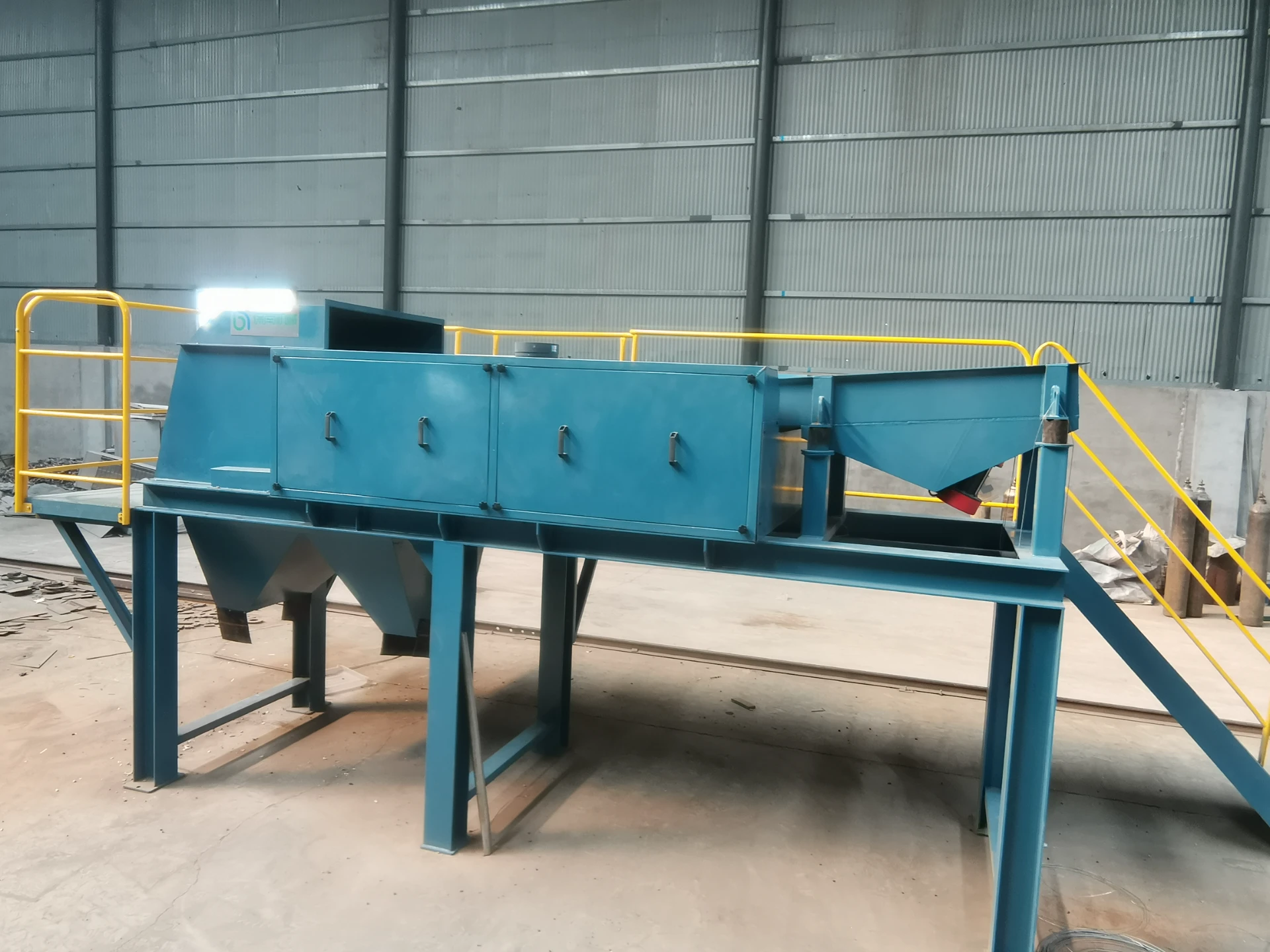

pro . 16, 2024 10:25 Back to list
Recycling old electronics is a crucial aspect of environmental sustainability that often goes overlooked. With the rapid advancement of technology, people tend to frequently upgrade their devices, leaving behind a significant amount of electronic waste, commonly referred to as e-waste. This waste, if not disposed of properly, can lead to substantial environmental and health issues. Therefore, understanding how to recycle old electronics effectively is essential for both individuals and communities.
Firstly, it is important to comprehend what e-waste encompasses. E-waste includes a broad range of discarded electronic devices, from smartphones and laptops to televisions and kitchen appliances. These devices often contain hazardous materials, such as lead, mercury, and cadmium, which can seep into the environment, polluting soil and water if not handled correctly. Recycling old electronics not only prevents these harmful substances from causing environmental damage but also allows for the recovery of valuable materials.
So, how do you recycle old electronics? The first step is to identify items that can be recycled. Most local municipalities have specific guidelines on what electronic items are accepted for recycling. Common items that can typically be recycled include computers, monitors, printers, and mobile phones. It's advisable to check with local waste management authorities or electronics recycling programs for their specific requirements.
Once you have gathered your old electronics, the next step is to find a suitable recycling program. Many communities offer e-waste recycling events, where individuals can drop off their unwanted electronics for proper disposal. These events are often hosted by local governments or non-profit organizations and provide an easy way for residents to recycle their old devices safely.
If local recycling events are not available, there are numerous organizations and facilities that specialize in electronic recycling. These centers are equipped to handle e-waste responsibly, ensuring that hazardous materials are safely disposed of and that recyclable components are recovered for reuse. Many larger retail chains also offer recycling programs. For example, stores like Best Buy and Home Depot have programs that allow you to bring in your old electronics for recycling, sometimes even offering a discount on new purchases as an incentive.

Another option is to consider donating your old electronics. If your devices are still functional, many charities and organizations will gladly accept them. Non-profits such as Goodwill or local schools may benefit from your donations, helping those in need while extending the lifecycle of the electronics. Just ensure that any personal data is wiped clean from the devices before donating, as this helps protect your privacy.
For those who are tech-savvy, selling old electronics might also be a viable option. Various online platforms allow individuals to sell their used devices directly to other consumers. Websites like eBay, Craigslist, and Facebook Marketplace provide convenient avenues for selling items. This not only helps you declutter but also promotes the reuse of electronics, which is an environmentally-friendly option.
It’s essential to note the environmental impact of improper e-waste disposal. The UN estimates that, globally, around 50 million tons of e-waste are generated each year, and only a fraction of it is recycled. This leads to pollution and health hazards, particularly in developing countries where e-waste is often shipped. By recycling old electronics correctly, individuals can contribute to a more sustainable future.
In conclusion, recycling old electronics is a simple yet impactful way to protect our environment. By identifying outdated devices, participating in local recycling programs, considering donation or resale options, and understanding the dangers of improper disposal, each individual can play a vital role in reducing e-waste. It is a collective responsibility to create an eco-conscious community, and recycling electronics is a significant step towards achieving that goal. So the next time you upgrade your gadget, remember to think about how you can recycle it responsibly!
Latest news
Troubleshooting Common Eddy Separator Problems
NewsJul.04,2025
The Role of Metal Recycling Plants in Circular Economy
NewsJul.04,2025
The Impact of Recycling Line Pickers on Waste Management Costs
NewsJul.04,2025
Safety Features Every Metal Shredder Should Have
NewsJul.04,2025
How Industrial Shredders Improve Waste Management Systems
NewsJul.04,2025
How Cable Granulators Contribute to Sustainable Recycling
NewsJul.04,2025